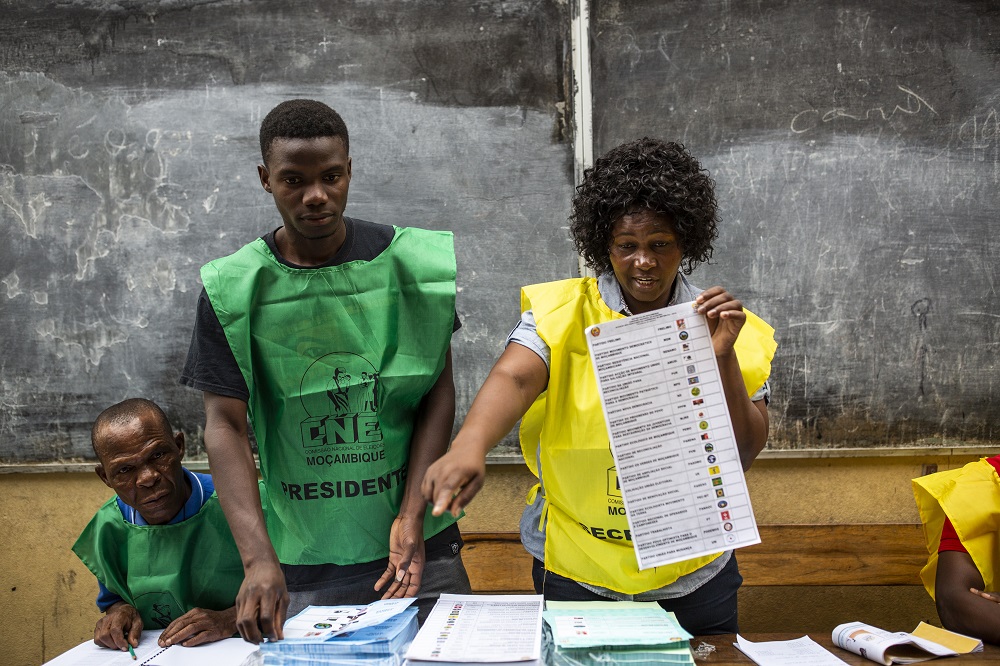
A National Electoral Commission official explains how to vote at Chota Primary School in Beira, Mozambique, on Tuesday.(Photo: AFP)
Polling stations in Mozambique opened early on Tuesday morning as the country participated in presidential, parliamentary and provincial elections.
It was relatively peaceful in many polling stations despite reported tension in the run-up to the general elections. On Monday, the National Electoral Commission issued a warning against any form of violence and said security had been beefed up to ensure that the process went smoothly.
About 13 million voters were expected to choose between four presidential candidates, but media reports have predicted that the ruling party, the Front for the Liberation of Mozambique, also known as Frelimo, and President Filipe Nyusi will win.
The elections come barely two months after the government signed a peace deal with Ossufo Momade, the leader of the opposition Renamo. Analysts predict that the election would be a test of the peace deal that ended armed hostilities.
Polling stations closed at 6 pm and vote counting was expected to continue throughout the night. Preliminary results are due to start trickling in on Wednesday.
The winner already has his work cut out for him as voters look for economic growth and stability.
The nation, which straddles a long coastal stretch of 2,470 kilometers on the Indian Ocean and boasts substantial deposits of natural gas, was hit by a pair of cyclones this year that devastated its economy and raised concerns about its early warning preparedness.
Early this year, tropical cyclones Idai and Kenneth wreaked havoc on agricultural production, which supports the majority of its rural population. According to the World Bank, real gross domestic product growth is estimated to be 2 percent this year, below the average of 3.7 percent seen between 2016 and 2018. It would be the lowest growth recorded since 2000 when Mozambique experienced devastating floods in the south of the country.
President Nyusi, who has governed Mozambique for the past five years, has promised to continue building a peaceful and politically stable country if reelected.
The opposition has pledged to change the country's fortunes by investing in job creation.
The ruling party has never lost an election since 1975 when it overthrew Portuguese rule.
However, Nyusi has faced difficulties such as sluggish economic growth, the effects of corruption scandals in the previous government led by President Armando Guebuza and falling prices for coal and natural gas that dampened the appetite of private investors.
According to the World Bank's recent analysis, the country urgently needs to address macroeconomic stability and re-establish investor confidence through improved economic governance and increased transparency. Also, structural reforms are needed to support the struggling private sector.


